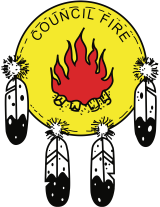Every Child Matters
On Thursday, July 1, 2021, Toronto Council Fire Native Cultural Centre organized the “Every Child Matters” walk in downtown Toronto to honour & support former students at Residential Schools and the thousands of children who perished attending them. While it was Canada Day, the tone and mood across the country was somber and mournful. The Indigenous communities and Nations across Turtle Island and their allies are grieving. On the same day, another mass pit was discovered near St. Eugene’s Mission School near Cranbrook, British Columbia, adding to sites revealed in Kamloops, Brandon, and Cowesses.

The TRC documented the deaths of more than 6,000 students as a result of residential schools, but the true figure “could be in the 15-25,000 range, and maybe even more,” Justice Murray Sinclair recently said.
In 2015, Justice Murray Sinclair said Canada needs answers.
Justice Murray Sinclair, who heads the Truth and Reconciliation Commission, said the federal government stopped recording the deaths around 1920, after the chief medical officer at Indian Affairs suggested children were dying at an alarming rate. “He was fired,” Sinclair said. “The government stopped recording deaths of children in residential schools, we think, probably because the rates were so high.”
A Walk to Remember
Every Child Matters walks were organized throughout the country to honour the memory and spirits of these children, their families, communities and Nations. In Toronto alone, there were over 10,000 participants that walked from Council Fire’s building at the corner of Dundas St. & Parliament St. to Nathan Phillips Square and the future site of the Spirit Garden. As hundreds of thousands of people walked in unity across the country, the culture, traditions, languages and history of the Indigenous Nations were displayed proudly, representing the failure of this horrendous policy. The aim was cultural genocide, and it didn’t work. At the front of the procession in each city were Indigenous youth, drumming and wearing their regalia, jingle-dress dancers sharing their gift of dancing and supporting everyone’s healing journey, and significant emblems like the Nations Flags, again symbolizing the cultural resilience of the Indigenous peoples of Turtle Island. On arrival at the Spirit Garden, the crowd were treated to prominent Indigenous speakers, Canadian political allies as well as performers and drummers, and more.
Video by Joe M. Smith (Film Director), Life Lens Productions
Below you will find a list of resources, videos, and links that can help you continue to stay informed, support us in the healing process, and make things right.
RESOURCES
A Indian Residential Schools Crisis Line (1-866-925-4419) is available 24 hours a day for anyone experiencing pain or distress as a result of his or her residential school experience.
The Truth and Reconciliation Commission of Canada’s “Missing Children and Unmarked Burials Project” is a systematic effort to record and analyze the deaths at the schools, and the presence and condition of student cemeteries, within the regulatory context in which the schools were intended to operate.
- Murray Sinclair Statement on Discovery at Kamloops Residential School (CBC) (Video)
- First Nations Health Authority: Support Services for Residential School Survivors
- Mental Health and Wellness Supports for Indigenous People (FNHA)
- Residential School History and Dialogue Centre
- Bring Reconciliation Into the Classroom by First Nations Child & Family Caring Society
BOOKS
Seven Fallen Feathers: Racism, Death, and Hard Truths in a Northern City by Tanya Talaga
All our Relations: Indigenous Trauma in the Shadow of Colonialism by Tanya Talaga
MOVIES
In this feature film, the profound impact of the Canadian government’s residential school system is conveyed through the eyes of two children who were forced to face hardships beyond their years. As young children, Lyna and Glen were taken from their homes and placed in church-run boarding schools, where they suffered years of physical, sexual and emotional abuse, the effects of which persist in their adult lives. We Were Children gives voice to a national tragedy and demonstrates the incredible resilience of the human spirit.
In the late 1950’s Ontario, eight-year-old Saul Indian Horse is torn from his Ojibway family and committed to one of the notorious Catholic Residential Schools. In this oppressive environment, Saul is denied the freedom to speak his language or embrace his Indigenous heritage while he witnesses horrendous abuse at the hands of the very people entrusted with his care. Despite this, Saul finds salvation in the unlikeliest of places and favourite winter pastime — hockey.
Residential School Survivors Speak Out (CBC Radio-Canada via YouTube)Residential School Survivors Speak Out (CBC Radio-Canada via YouTube)
[tta_listen_btn]
